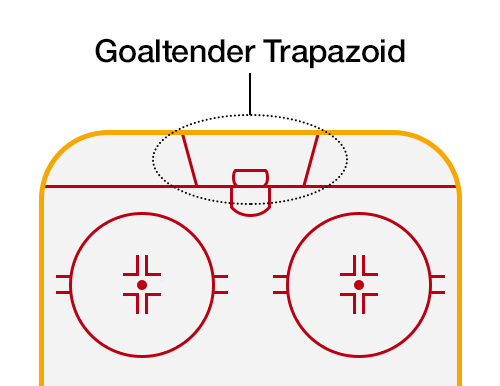Sporting
Sports are weird.
Like, really weird. Especially professional sports.
Especially especially popular professional sports.
You see, a sport might start out as an engaging physical activity. But once it goes pro something has to give. Because humans are imperfect monsters that will break your game.
Meet the legendary Ice Hockey goalie Martin Brodeur.
Say hello to Mr. Brodeur.
Before he became a rental car company representative, he was a St. Louis Blue for 57 days. Before that he was a New Jersey Devil for 21 years. His career with the Devils was old enough it could drink in New Jersey. He was an integral piece of their defensive system, which can be summarized as “don’t let anything happen ever”. His role in this well oiled machine can be broken down into two parts:
Make sure pucks do not go into the net
Intercept pucks that were dumped into his zone, by skating into the corners and then passing that puck up to one of his teammates
Brodeur was very good at the first job. But he was otherworldly at the second job. His mobility and passing allowed the Devils to play an extremely lethal “trap” game. Playing a Trap basically means your team prioritizes defending against clean zone entries over everything else in the game. If the puck can’t be carried into your zone, it has to be lobbed into one of your corners. Luckily for the Devils, Brodeur was often there to retrieve the puck and pass it to one of his skaters.
The New Jersey devils won the Stanley Cup at the end of the 2002-2003 season. Just a couple seasons later (2005-2006) the NHL would paint some new lines on the ice. Meet the Trapezoid.
Goalies were no longer allowed to go into the corners to retrieve the puck. It was a direct attack on Brodeur’s style of play. Some even called it the Brodeur rule.
In the 2002-2003 season, goalies who played over 10 games and were in the top 50 for save percentage averaged 26.3 shots against per game. Brodeur faced on average 23.6. Using the same criteria for 2005-2006, the league average went up to 27.6, but Brodeur’s average shot up to 28.8. For the first time since he entered the NHL, Brodeur was forced to be just an elite goaltender. Not an iconoclast that warped the sport around his unique skillset.
Instead of celebrating what Brodeur could do in the game, the game was changed so he could never do it again.
In 2002-2003 the average number of goals scored per game was 2.65. In 2005-2006, that number jumped to 3.08, which is the highest it’s been since 1995-1996.
Anyways, I’ve decided to invent my own sport. I’m calling it Club Ball and it’s being made in Unity.
I’m calling it that because there is a club and a ball. I’m trying to mix Football with Baseball with American Football with Cricket. I never plan on playing it physically. It’s going to be a purely digital sport but I want it to feel plausible. The idea is to build a Manager style game around it (like the popular Football Manager series). Players will run professional teams in professional leagues and have professional problems.
When NHL Officials watched hockey during the peak years of Martin Brodeur’s reign of terror, they saw a game being held back in popularity because no one could score goals, and scoring opportunities were scarce. As a kid who just started playing goalie, I saw a super hero who had found a new way to fight crime. It was amazing.
Looking back nearly 2 decades I see a sport that absolutely needed to change. On May 8th 2000 the Toronto Maple Leafs lost 3 - 0 to the New Jersey Devils, managing only 6 shots on Martin Brodeur. The total shots were 33. Today in a pre-season game against the Ottawa Senators, the Toronto Maple Leafs had 32 shots on goal. The game is faster and more competitive than it’s ever been, and it celebrates more traditional unique skill sets; incredible speed, blistering shots, inhuman reflexes. But there will never be another Martin Brodeur.
I hope I have room in Club Ball for a Brodeur. I’m trying to make room. But I have some key advantages that the NHL did not have in 2005, and still don’t have today:
I can fuck with gravity
If my players are too weak, I can make them stronger
Maybe that’s a bad example, steroids exist
Since no one is actually playing Club Ball, I can change the rules whenever I want to try and improve things
I directly control how players behave, since I write all the code that determines how players behave
Earlier this week, my hitter could barely hit the ball. Now this happens:
The mundane and weird of professional sports is something I want to capture in the design of Club Ball. It can’t strictly be the coolest and most fascinating sport ever created (I’m pretty sure Jon Bois has that covered). It has to be kind of boring and marketable. I also want to allow players to modify the rules of Club Ball while they play. If my game somehow generates a Martin Brodeur I want players to decide whether to celebrate someone like that, or quarantine their greatness in little polygon behind the net where the Cameras don’t work so well.
Anyways, stay tuned. Hopefully I don’t get bored of this project and chase a new shiny idea in a few weeks.



